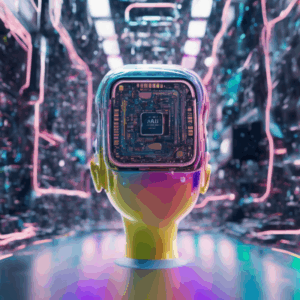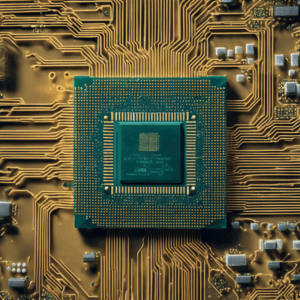
Artificial Intelligence Transforms Patient Care and Reduces Burnout, Physician Says
Is artificial intelligence reshaping the healthcare landscape? 🏥 Dr. Emily Carter thinks so. “AI is not just a tool; it’s a revolutionary force in patient care,” she asserts, as countless other physicians echo her sentiment, heralding a new era where technology meets empathy.
The AI-Driven Revolution in Healthcare
Artificial intelligence is making waves in healthcare by offering precision, predictive analysis, and a substantial reduction in repetitive tasks. From electronic health records to advanced diagnostic imaging, AI’s impact is undeniable. 📊 As the healthcare industry embraces these innovations, patient care becomes more efficient and personalized.
Precision and Predictive Care
Precision medicine, driven by AI, allows for diagnosis and treatment plans tailored to individual genetic profiles. AI algorithms analyze vast arrays of data to identify patterns and predict health trends, transforming how we approach diseases. 🧬 Machine learning models are pivotal in predicting potential health risks, thereby empowering physicians to implement preemptive interventions.
Combatting Physician Burnout
Beside enhancing patient care, AI is proving to be a savior for overburdened healthcare providers. “AI helps alleviate the repetitive paperwork that burdens physicians, allowing them more time to connect with their patients,” Dr. Carter explains. By streamlining administrative duties, AI gives healthcare professionals the opportunity to focus on what truly matters — patient engagement and holistic care.
Real-World Implementation and Results
Implementation of AI in hospitals across the globe has led to significant improvements in healthcare delivery. A 2023 study by the Healthcare Technology Institute reported a 30% increase in diagnostic accuracy in hospitals employing AI systems. 📈 Furthermore, these innovations contribute to reducing medical errors and optimizing workflow efficiency.
The Future of AI in Healthcare
Looking forward, the role of AI in healthcare will only grow. Companies investing in AI healthcare applications highlight this with consistent advancements in natural language processing and robotic surgery. As Dr. Carter notes, “The future will see AI not as an auxiliary tool but an integral component of interdisciplinary healthcare teams.”
Ethical Considerations and Challenges
Despite its promises, the integration of AI raises ethical considerations concerning privacy and data security. Balancing innovation with ethical responsibility is paramount. “We must ensure that AI benefits are accessible to all, without compromising patient confidentiality,” Dr. Carter cautions.








